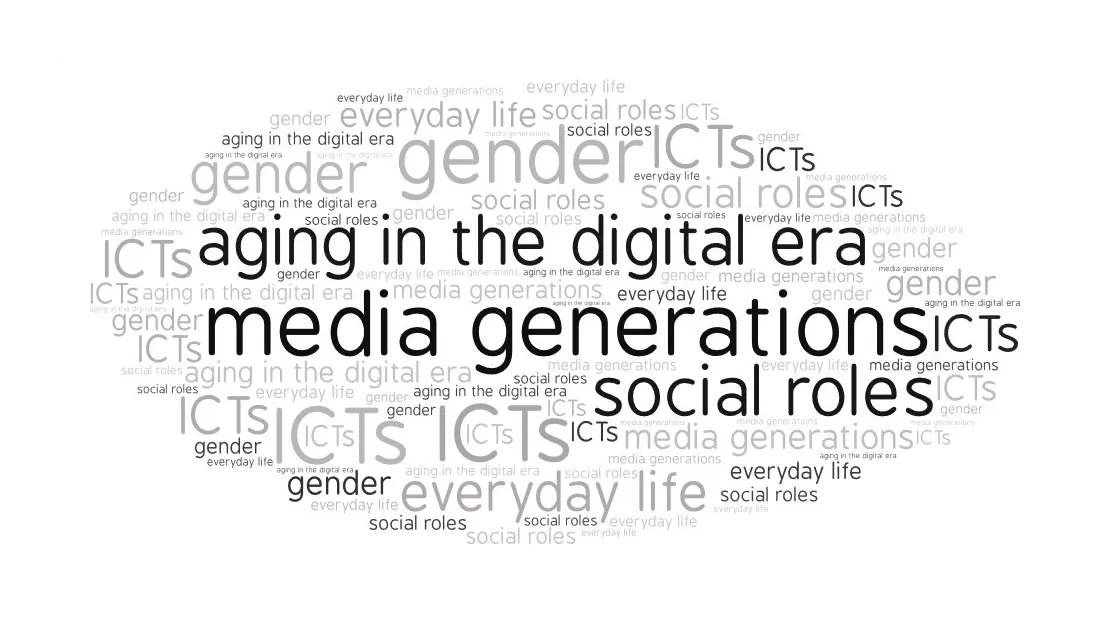
Media Relations: How and Why Older Women Care for Information and Communication Technologies
- Hosting organisations
- Zentrum für Inter-Amerikanische Studien and Ageing + Communication + Technologies (ACT)
- Responsible persons
- Barbara Ratzenboeck
- Start
- End
Working, learning, getting news, shopping, leisure, catching up with family and friends – As more and more aspects of our everyday lives happen online, research on the social practices, structures, and consequences of digitalization, as well as their cultural implications, becomes increasingly important. How and why people use different kinds of (digital) media depends on various factors, such as socio-economic resources, technological infrastructure, location, and social norms related to gender and generational position, but also individual interests. A thorough understanding of media engagement thus requires multiple perspectives and interdisciplinary investigation. The recently completed PhD project titled ‘Media Relations: How and Why Older Women Care for Information and Communication Technologies’ examined how women aged 60 plus engage with ‘old’ and ‘new’ ICTs in everyday life and how this relates to lifetimes of experience with technology change. In doing so, the study built on a mixed-methods design, combining the descriptive analysis of Austrian data of wave one of the ‘ACT Cross-National Longitudinal Study: Older Audiences in the Digital Media Environment’ (n= 1,281) (https://actproject.ca/act/longitudinal-study/) with the analysis of qualitative material from guided interviews, walking interviews in small domestic spaces, and the discussion of media biographies with older women. Although older women are a diverse group and thus have diverse experiences with ICTs, the study was able to identify multiple patterns of their ICT use. Notably, older women’s engagement with new ICTs involves a “double logic of care.” Either they use new ICTs to care for others (particularly their families), or, on the contrary, explain to be too busy caring for others to engage with new ICTs. However, independently of whether they use new ICTs extensively in retirement or not, their understanding of ICTs most often revolves around the topic of caring for others.
Open access project resources
Ratzenböck, Barbara (2020). Media Relations: How and Why Older Women Care for Information and Communication Technologies. Dissertation. Universität Graz. https://unipub.uni-graz.at/download/pdf/5099170
Ratzenböck, Barbara (2016). ‘Examining the Experiences of Older Women with ICTs. Interrelations of Generation-Specific Media Practices and Individual Media Biographies’, Nordicom Review, 37 (special issue): 57-70. doi: 10.1515/nor-2016-0023. https://www.nordicom.gu.se/sv/system/tdf/kapitel-pdf/10.1515_nor-2016-0023.pdf?file=1&type=node&id=37879&force
Ratzenböck, Barbara (2016). ”Let’s Take a Look Together’: Walking Interviews in Domestic Spaces as a Means to Examine ICT Experiences of Women 60+’, Romanian Journal Of Communication And Public Relations, 18(1): 49-64. doi:10.21018/rjcpr.2016.1.201. https://journalofcommunication.ro/index.php/journalofcommunication/article/view/201
Acknowledgements: Research for this project was supported by funds from the Österreichische Nationalbank (Anniversary Fund, project number: 15849), as well as a grant from the Social Sciences and Humanities Research Council of Canada to the Ageing, Communication, Technologies project 895-2013-1018 (actproject.ca).